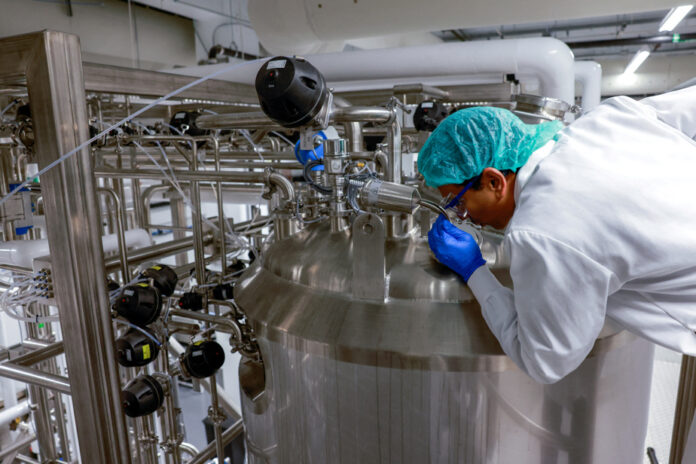(Washington) The United States is paving the way for the arrival of artificial meat on the plates, by authorizing the sale of chicken meat grown in laboratories by two companies on Wednesday for the first time.
The United States Department of Agriculture (USDA) has inspected and approved the food safety systems of Upside Foods and Good Meat, a spokesperson told AFP.
These products will soon be available in certain restaurants, the two companies said.
The two companies had already obtained the green light from the United States Food Safety Agency (FDA) in November, while the Ministry of Agriculture had already approved the conformity of the labels last week.
“This clearance will fundamentally change the way meat lands on our tables,” said Uma Valeti, CEO and Founder of Upside Foods, who also hailed “a giant step towards a more sustainable future” in a statement.
Josh Tetrick, co-founder and CEO of Eat Just, the company behind Good Meat, said he was delighted that lab-grown meat is now “allowed for sale in the world’s leading power”.
His company was the first to receive permission to market artificial meat in Singapore in 2020.
Last May, Eat Just signed an agreement with an equipment manufacturer to develop giant tanks in which it hoped to produce chicken and beef on a large scale.
On the heels of the US clearance, Upside Foods received its first order from Michelin-starred French chef Dominique Crenn’s restaurant in San Francisco.
Celebrity chef José Andrés is set to get him the first American batch from the Good Meat company, which will be served at one of his restaurants in the capital, Washington.
Many start-up companies aim to produce and market so-called “laboratory” or artificial meat, to allow humans to consume animal protein with less impact on the environment than that of intensive farming, and without animal suffering. .
These products differ from plant-based substitutes, such as soy-based “steaks” and other ingredients that mimic the texture and flavor of meat, but contain no animal protein.
But laboratory meat remains very complicated and very expensive to produce for the moment. Other companies have therefore turned to the pet food market, a priori less difficult to satisfy than their owners.
Bond Pet Foods, a start-up in Colorado, is creating animal protein from a microbial fermentation process to feed dogs without killing cows or chickens.
Making artificial chicken meat involves culturing cells extracted from an animal or fertilized chicken eggs in bioreactors and feeding them nutrients similar to those ingested by real animals: protein, fat, sugar , minerals and vitamins.
Thanks to these nutrients, the cells grow as they would in the body of the animal, and become muscle tissue and fat. The resulting product is then “harvested” from the vats and molded into certain predefined shapes, such as that of a chicken fillet.
However, questions persist about the real environmental impact of this alternative, in particular its energy consumption and health safety.
A recent study from the University of California at Davis, which has not yet been reviewed by other scientists, has shown that all phases of laboratory meat production require a lot of energy and emit a large amount of greenhouse gases.















